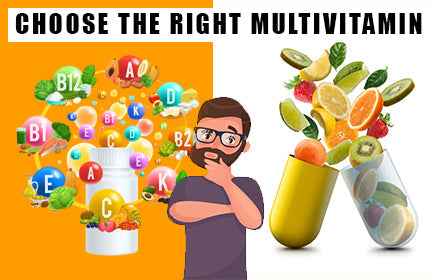How to Promote Brain Regeneration
There are certain things in the body you may assume you cannot repair. Of those things you may expect you cannot repair or regenerate, your brain is generally one of them. For decades, traditional medicinal science has claimed your brain is beyond repair, and if your brain was ever damaged, there is nothing you could do to repair it. However, the field of cognitive neuroscience is rather new, so scientists are consistently publishing new research.
Fernando Nottebohm first hypothesized this unorthodox idea at Rockefeller University, when he claimed his research showed evidence of neurogenesis, the production of new brain cells, in the adult vertebrate brain. Since then, scientists have confirmed his hypothesis and created the term neuroplasticity. Neuroplasticity refers to the brain’s ability to rewire itself through the practice of a new skill, i.e., the brain's ability to rewire itself as you learn because of new neuron connections.
Like muscles in the body, when the brain is well-nourished and stimulated through proper exercise, it will heal and grow. This article will examine five ways you can preserve your brain’s health and promote neuroplasticity.
Physical Exercise
Not only does working out train your body, but it will also train your brain. This is because of two reasons. First, the brain has an insatiable desire for glucose and oxygen, and when you work out, your heart rate increases, which, in turn, increases, blood, oxygen, and glucose flow to your brain. One study showed thirty minutes of exercise five times a week increased cognitive performance in adults [1]. Second, intense exercise has been shown to increase hippocampal neurogenesis, i.e., new cell growth in the region of the brain associated with long-term memory and emotions [2]. Cell growth in this region of the brain is extraordinary because it is believed to help prevent cognitive decline associated with Alzheimer’s disease and dementia.
Stress Reduction Techniques and Continuous Learning
Studies have shown excess stress can cause cumulative damage to the brain and produce cognitive impairments with age [3] [4]. In a 2011 study, researchers found computer and craft exercises were correlated with decreased chances of having mild cognitive impairments, and events such as social activities and traveling have a notable marginal significance [5].
In another study, German researchers inspected two groups: a group who saw art and a group who produced art. The researchers found the group who created art showed more considerable spatial improvement in functional connectivity within the frontal and parietal cortices of the brain [6]. The researchers also recorded the neural effects of producing visual art help the brain to be resilient in adulthood, i.e., the brain's capability to resist the adverse consequences of stress improved [6].
Other ways you can relax and reduce stress include playing beautiful, relaxing music, or sitting in quiet contemplation. To read more about stress and its effects, see this article: Cortisol’s Effects and How to Reduce it Naturally.
Supplements
The whole turmeric has been shown to have nerve-regenerative effects. Now, this is whole turmeric, not just curcumin. Traditional and natural medicine has attempted to identify one active ingredient in turmeric; however, the ingredient ar-tumerone, which is present in the oil of turmeric, has been shown to show encouraging support for regeneration in neurologic diseases [7] [8]. Finding ways to consume the whole turmeric seems to be one of the best ways to get this substance.
Green tea, more specifically its active ingredient, catechins, is an antioxidant and a neuroprotective as well as be neurogenerative. One study affirmed catechins act directly as radical scavengers and exert indirect antioxidant effects and play a protective role in neurodegeneration, and other studies have supported this notion [9] [10] [11].
Honey is another supplement you could take to help support your brain’s neurogenerative health. Honey polyphenols are useful in improving memory deficits and can act at the molecular level [12]. Though this study did not directly link honey polyphenols to neurogenerative actions, the researchers called for scientists to directly examine this possibility in future studies because of how promising the aspect was after this study was completed [12]. If you are going to use honey, I would recommend looking for the rawest honey you can find.
I think I can safely presume most people have not heard of ginkgo biloba, but ginkgo biloba has been shown in numerous studies to aid and promote the healing of damaged regions in the brain because of its ability to stimulate levels of a specific protein: brain-derived neurotrophic factor. For a full list of these studies, please see reference [13]. A 2006 study found ginkgo biloba to be as powerful in the treatment for Alzheimer’s disease as the pharmaceutical Donepezil [14].
Eat Vegetables
There are many naturally occurring neurogenic substances in vegetables that have been shown to stimulate nerve growth in the brain. Reasonably the most important element being sulforaphane. Sulforaphane is present in sulfur-rich foods such as broccoli. In a 2019 study, researchers claimed, “The present study suggests that sulforaphane-enriched broccoli sprouts might be a potential nutraceutical with anti-neuroinflammatory and neuroprotective activities” [15]. Other vegetables which contain sulforaphane include Brussels sprouts, cabbage, cauliflower, horseradish, kale, mustard leaves, radish, turnips, watercress, and bok choy.
Healthmasters’ Ultimate Immune Booster’s only active ingredient is sulforaphane glucosinolate, a form of sulforaphane, so if you are looking for a sulforaphane supplement, I would recommend this product.
Conclusion
My goal in this article was to teach you on how you can protect your brain and promote the neurogenerative effects of your brain. Even at a mature age, it is entirely possible for you to reverse neurological damage by employing the actions and tasks above. Through practice and working these activities into your lifestyle, you can support your brain’s long-term health.
If you have any questions about Healthmasters’ Ultimate Immune Booster, please feel free to call our office at 800.726.1834.
References:
[1] https://www.ncbi.nlm.nih.gov/pmc/articles/PMC3872007/
[2] https://www.ncbi.nlm.nih.gov/pmc/articles/PMC5281566/
[3] https://www.ncbi.nlm.nih.gov/pmc/articles/PMC4906299/
[4] https://www.ncbi.nlm.nih.gov/books/NBK3914/
[5] https://www.ncbi.nlm.nih.gov/pubmed/21677242
[6] https://journals.plos.org/plosone/article?id=10.1371/journal.pone.0101035
[7] https://www.ncbi.nlm.nih.gov/pmc/articles/PMC4180255/
[8] https://www.biomedcentral.com/about/press-centre/science-press-releases/26-sep-2014
[9] https://www.karger.com/Article/Pdf/85385
[10] https://www.jstage.jst.go.jp/article/bpb/25/12/25_12_1513/_article
[11] https://www.sciencedirect.com/science/article/pii/S095528630500269X?via%3Dihub
[12] https://www.hindawi.com/journals/ecam/2014/958721/
[13] https://www.ncbi.nlm.nih.gov/pubmed/?term=BDNF+gingko

